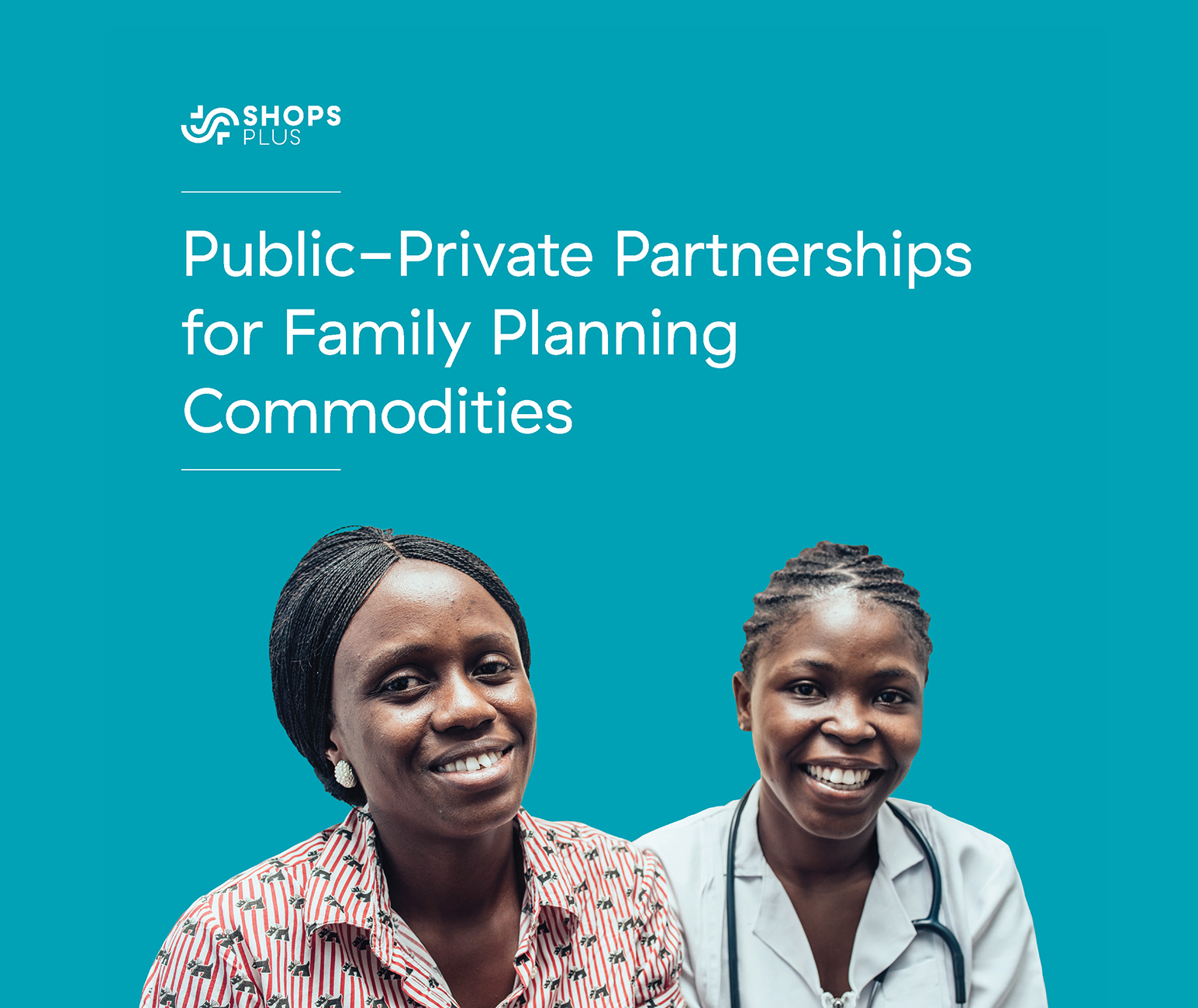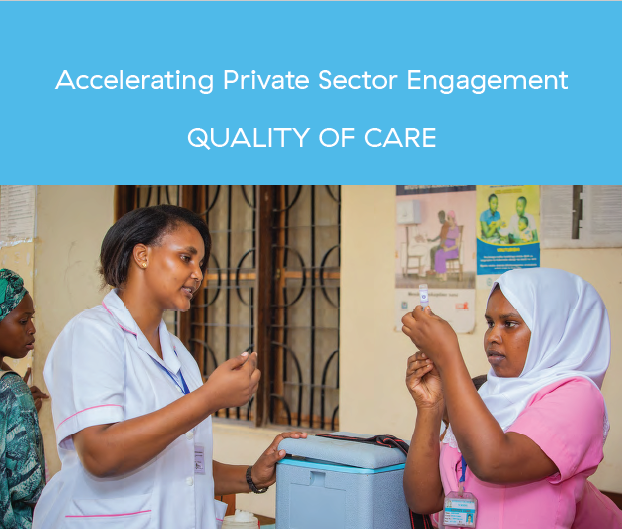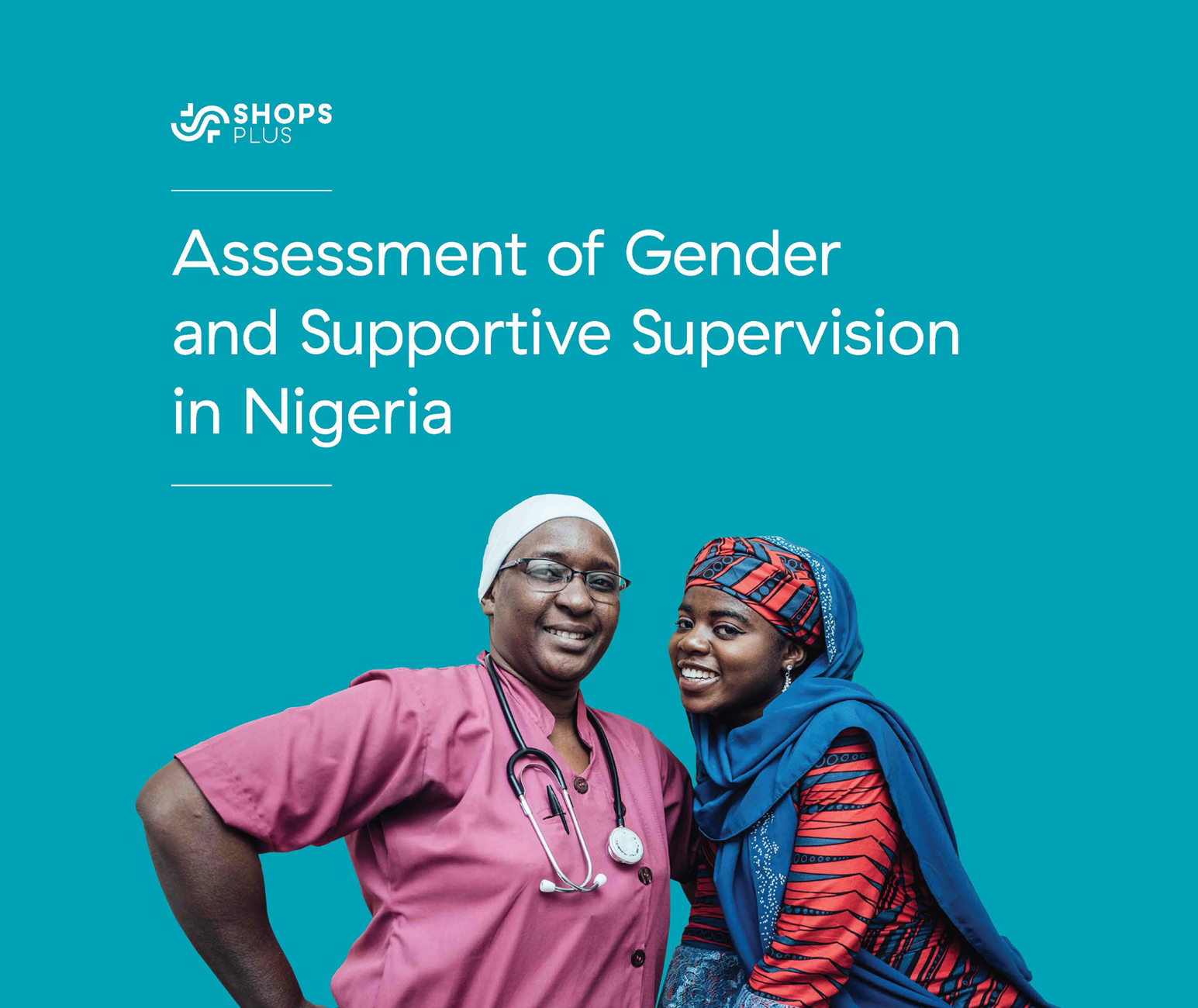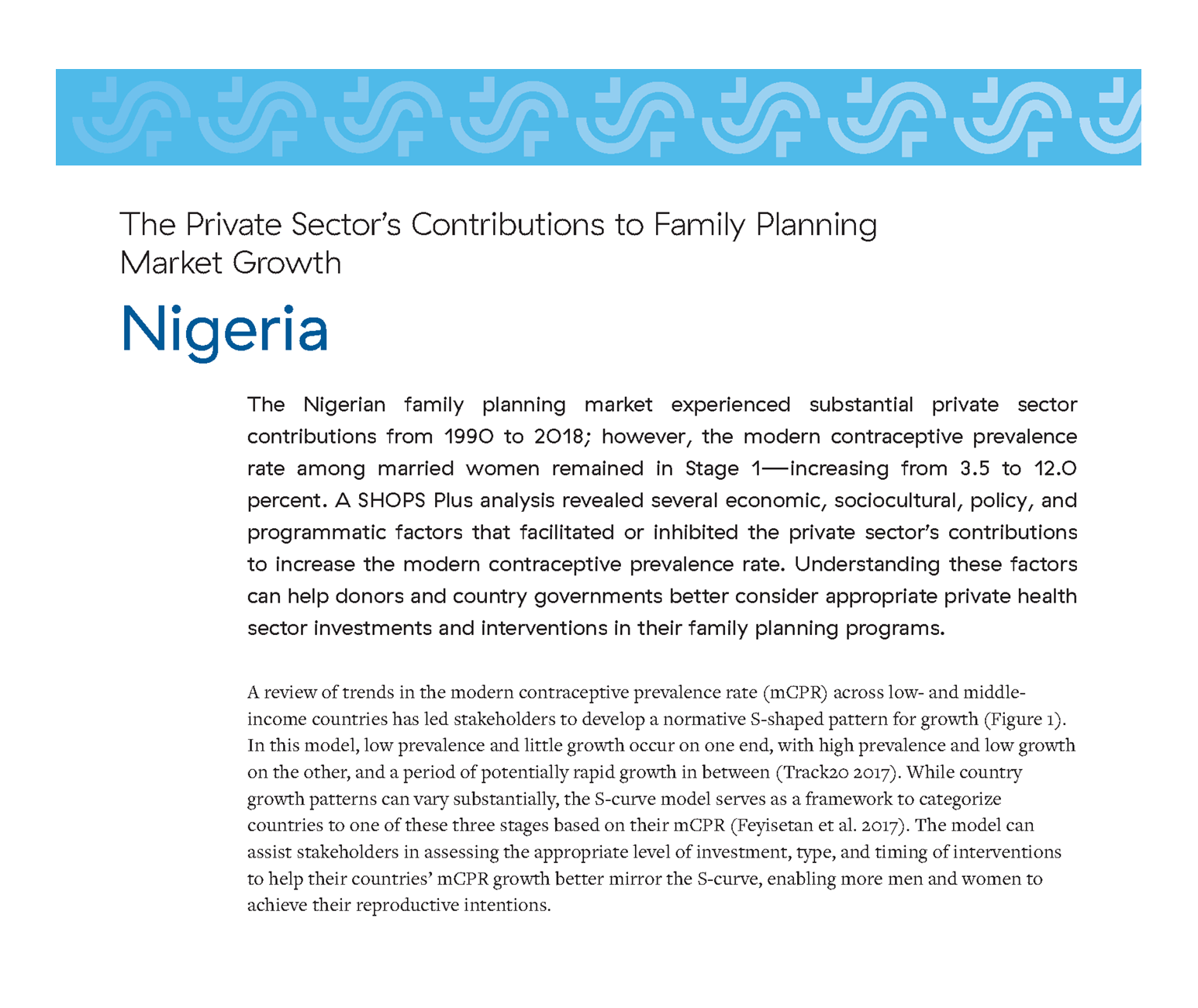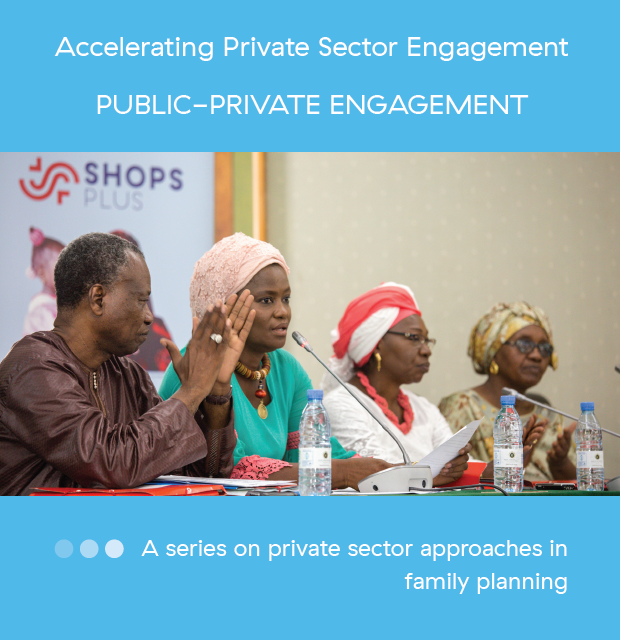
Resource Library
SHOPS Plus Tuberculosis Program in Nigeria
Nigeria has one of the lowest case detection rates among high tuberculosis (TB) burden countries. With an estimated 452,000 cases in 2020, according to the WHO, only 31 percent were reported as receiving treatment. The private health sector has been an underused resource for TB detection in Nigeria because the TB program has been public sector focused. Strengthening the private sector’s capacity to detect and treat TB is vital to increase the TB case detection rate in Nigeria. The SHOPS Plus TB program been working with the Nigerian government and private providers on a public private partnership that has successfully changed this dynamic and increased access to TB care through the private sector. To do this, SHOPS Plus established networks made up of different cadres of private providers to detect, diagnose, follow-up, and treat TB.
Resource Type : Brief
Country : Nigeria
Year : 2021-12-15T14:00:00
Language : English
Project : SHOPS Plus

Resource Library
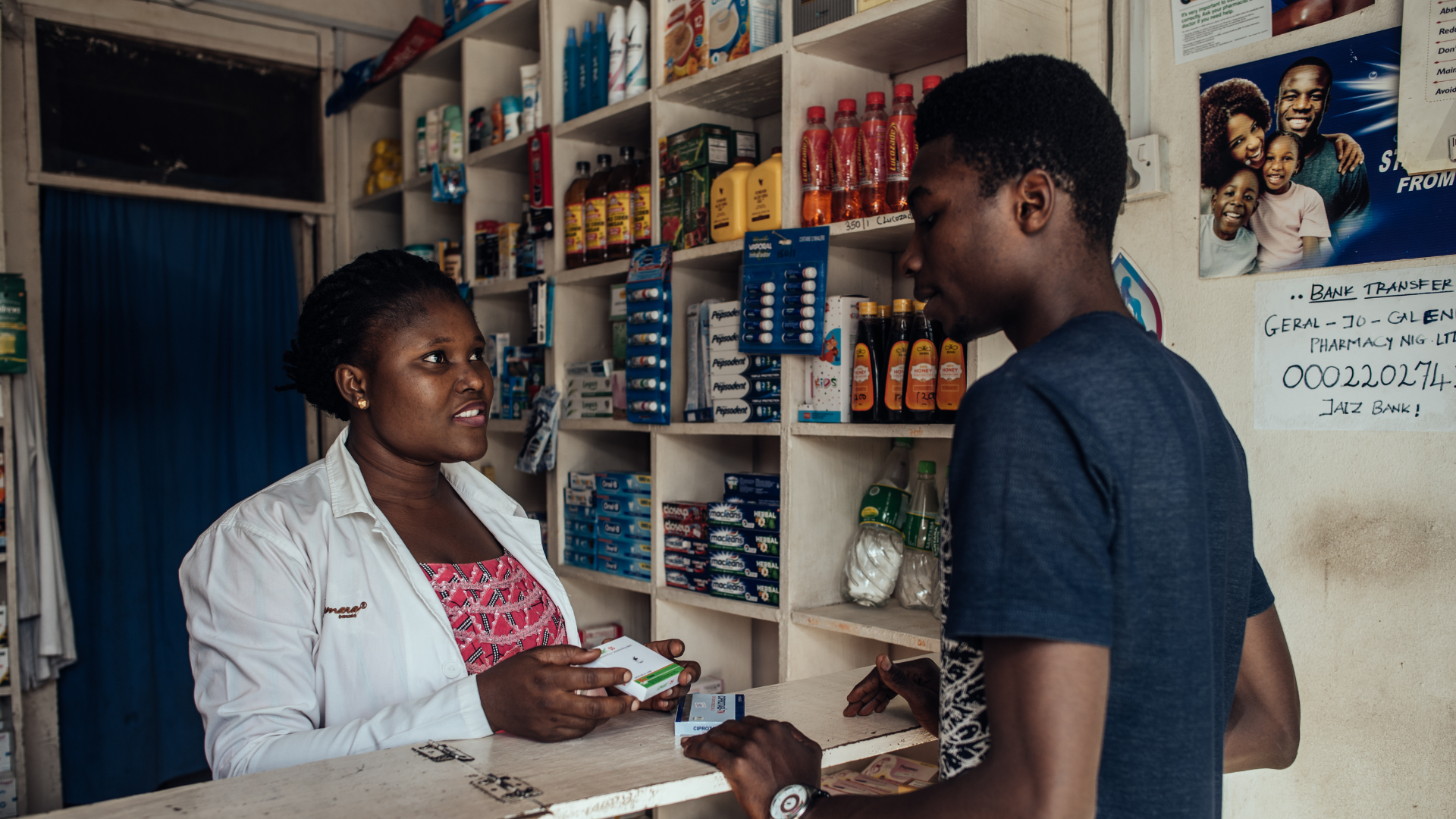
Webinar: Assessing the Quality of TB Services in Nigeria: Results from a Mystery Client Survey
SHOPS Plus shared key findings from two phases of a mystery client survey, conducted in 2019 and 2021, which assessed the quality of TB services in Nigeria. Representatives from the program, and research teams, discussed the study’s implications for private sector programming in TB and the utility of a mystery client survey.
Nigeria’s large private health sector represents an underused resource for combating TB. To examine the quality of private sector contributions to TB detection and treatment, SHOPS Plus evaluated the adherence to national standards. The evaluation looked at the management of TB cases and sputum samples by staff in private facilities trained by the project including clinics, laboratories, pharmacies, and drug shops.
This webinar shared how health providers maintained the same level of quality of care that they had prior to the COVID-19 pandemic and what improvements were made in TB detection and treatment from 2019 to 2021.
Moderator
- William Wells, Senior TB Technical Advisor, USAID
Presenters
- Bolanle Olusola-Faleye, Nigeria TB Technical Director, SHOPS Plus, Abt Associates
- Lauren Rosapep, Research, Monitoring, and Evaluation Lead, SHOPS Plus, Abt Associates
- Mariose Amarikwa, Managing Consultant, Qualiquant Services Limited
Discussant
- Dr. Madhukar Pai, Associate Director, McGill International TB Centre
Closing remarks
- Guy Stallworthy, Global Lead for Private Provider Engagement, Bill & Melinda Gates Foundation
Relevant story: Mystery client study reveals the quality of TB care in Nigeria
Resource Type : Webinar
Country : Nigeria
Year : 2021-12-07T11:00:00
Language : English
Project : SHOPS Plus

Resource Library
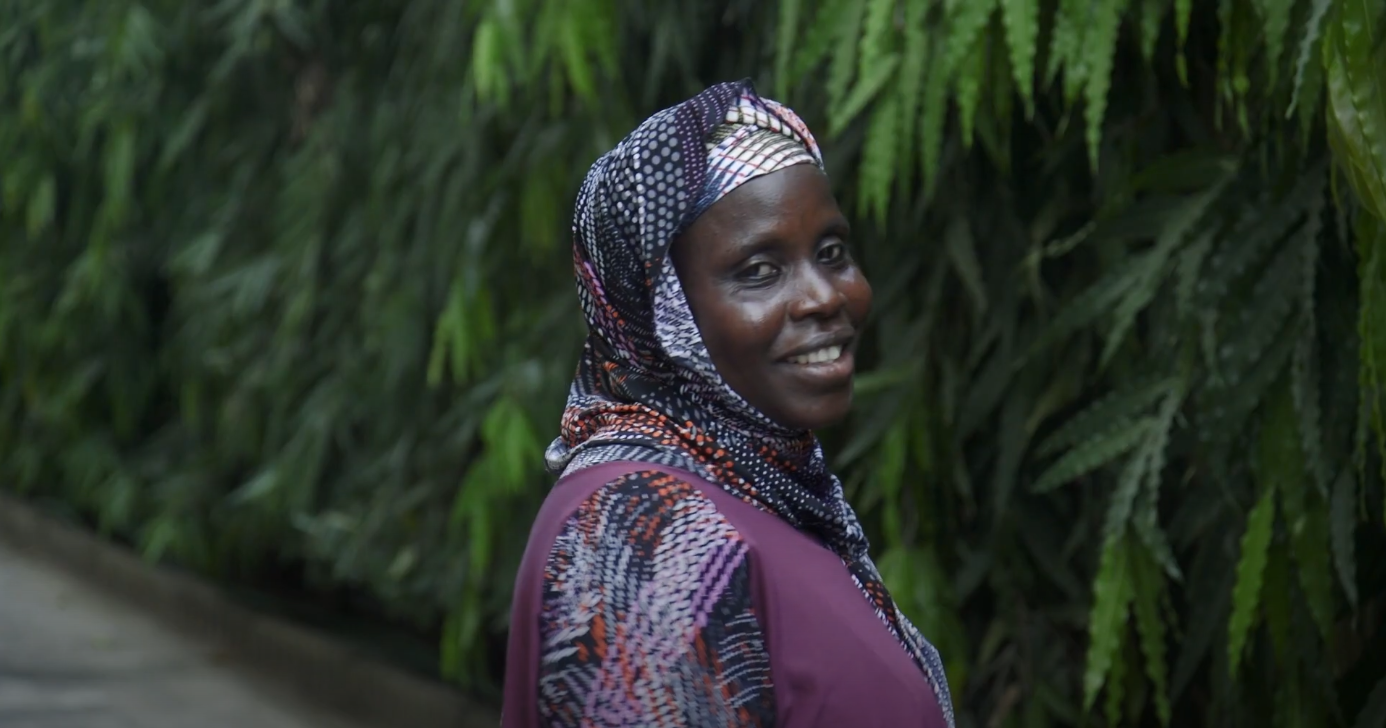
Video: SHOPS Plus Tuberculosis Program in Nigeria
In 2019, over 400,000 Nigerians had TB but only a quarter of them were diagnosed and treated. The private health sector has been an underused resource for TB detection in Nigeria because the TB program has been public sector focused. The Sustaining Health Outcomes through the Private Sector (SHOPS) Plus TB program, funded by USAID, has been working with the Nigerian government and private providers on a public private partnership that has successfully changed this dynamic and increased access to TB care through the private sector.
Resource Type : Video
Country : Nigeria
Year : 2021-11-11T12:00:00
Language : English
Project : SHOPS Plus

Resource Library
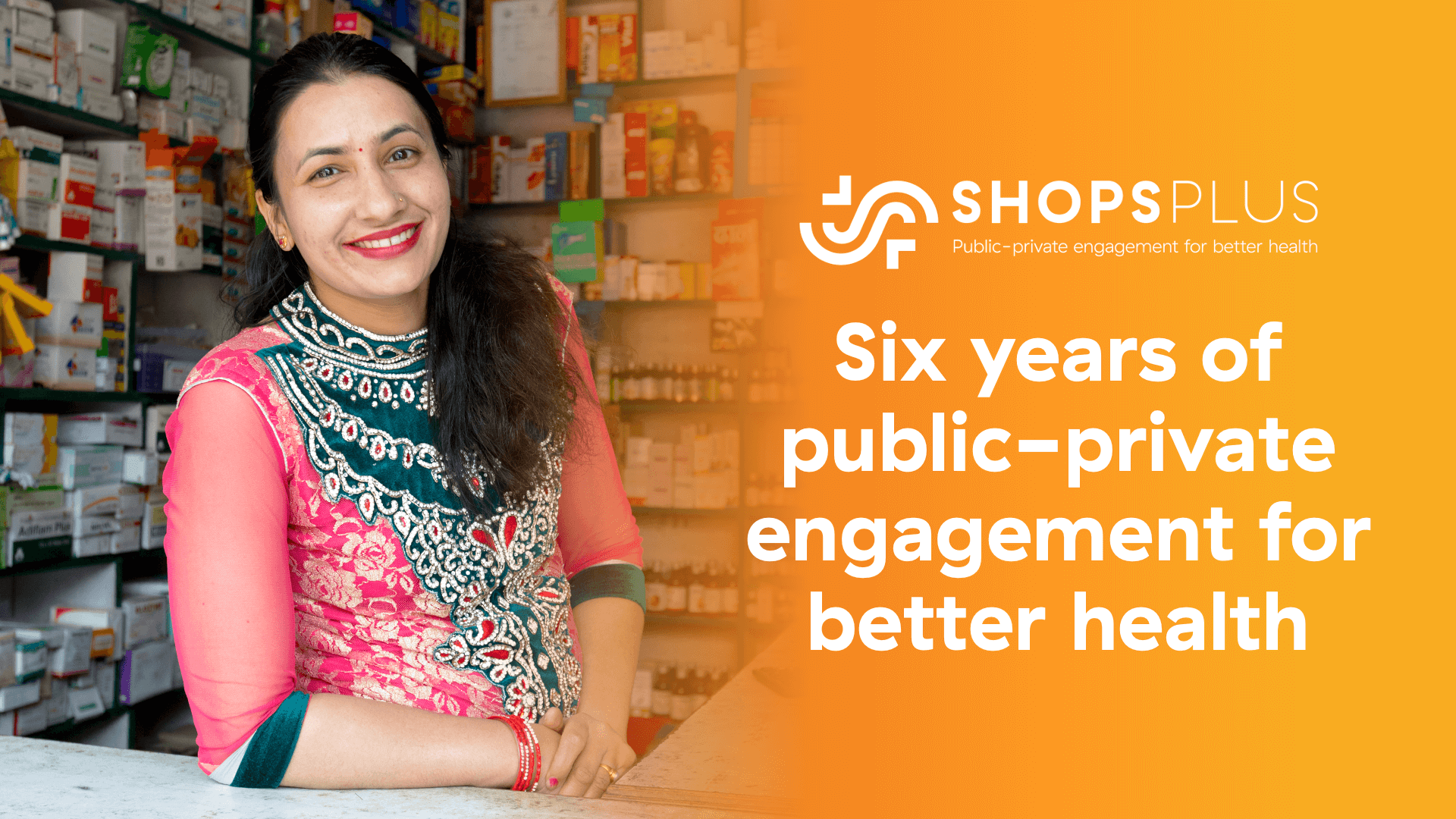
Video: Highlights from SHOPS Plus - Six years of public-private engagement for better health
Watch highlights from six years of SHOPS Plus engaging the private sector in health.
The video was shown July 14, 2021, during the webinar “Accelerating private sector engagement: What the future holds.”
Resource Type : Video
Country : India, Kenya, Madagascar, Nepal, Nigeria, Rwanda, Senegal, Tanzania
Year : 2021-07-15T12:30:00
Language : English
Project :

Resource Library
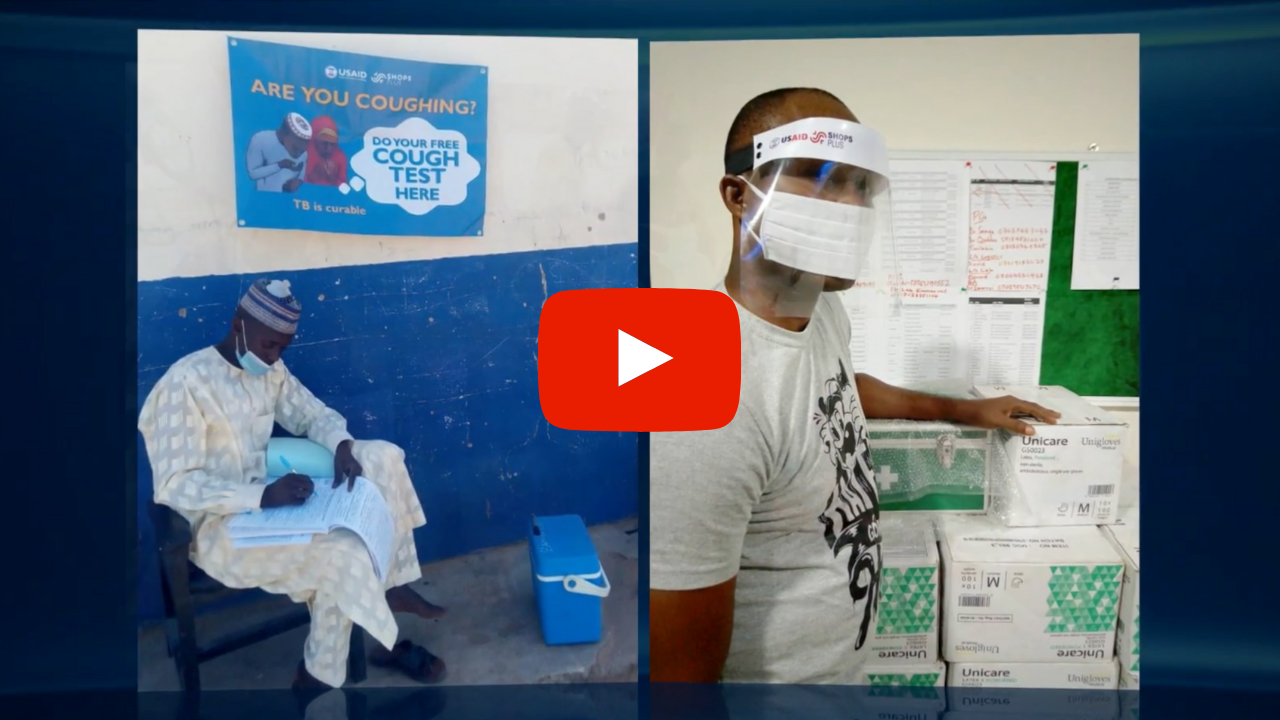
VIDEO: COVID-19 innovations from the SHOPS Plus Nigeria TB program: Optimizing TB case detection during a pandemic
On World TB Day 2021, SHOPS Plus would like to present the following short video on optimizing TB case detection during a pandemic, featuring Dr. Bolanle Olusola-Faleye, Tuberculosis Technical Director for the SHOPS Plus project in Nigeria.
During the COVID-19 pandemic, the SHOPS Plus Nigeria TB program not only sustained project implementation but saw its most significant surge to date in TB case finding. In Lagos and Kano states, the program achieved this success through flexible and innovative program adaptation. For example, the SHOPS Plus TB program shifted from in-person to virtual supportive supervision and capacity building, provided infection prevention and control materials, adapted TB screening approaches using roaming screeners and digital technology, and more. Although SHOPS Plus and its provider networks faced many challenges adapting to the world's "new normal" in 2020, it has emerged more robust and even more effective at reaching those in need of TB care.
Resource Type : Video
Country : Nigeria
Year : 2021-03-23T10:00:00
Language : English
Project : SHOPS Plus

Resource Library
Public-Private Partnerships for Family Planning Commodities
Many governments and donors support the use of public-private partnerships to distribute publicly managed commodities through the private health sector to overcome barriers to access for the full range of family planning methods. This brief draws on country experiences with commodity partnerships for family planning in Kenya, Nigeria, and Tanzania. It documents approaches used to place government-managed commodities into the hands of private providers and ultimately the women seeking the method. It examines factors that motivated public and private actors to pursue partnerships to enable private sector provision of long-acting reversible contraceptives, and how well the implementation of the partnerships aligned with those motivations. The brief discusses the challenges and lessons learned from this experience, and concludes with reflections about when and how donors and governments might decide to replicate, improve, or scale up these partnerships.
Resource Type : Brief
Country : Kenya, Nigeria, Tanzania
Year : 2021-03-26T14:00:00
Language : English
Project : SHOPS Plus

Resource Library
Accelerating Private Sector Engagement: Quality of Care
Privately delivered health care is an important component of many countries’ national health system service offerings. Ensuring that care is of a high quality is a priority for the global community. This brief shares a range of approaches and implementation experiences that focus on improving the quality of private health care from SHOPS Plus work in Madagascar, Nigeria, Senegal, and Tanzania. It provides broad and contextual lessons as well as practical tips for implementing partners and donors who want to support efforts assuring and improving the quality of private health service delivery.
Resource Type : Brief
Country : Madagascar, Nigeria, Senegal, Tanzania
Year : 2021-03-17T10:00:00
Language : English
Project : SHOPS Plus

Resource Library
Assessment of Gender and Supportive Supervision in Nigeria
As part of a family planning intervention in Nigeria, SHOPS Plus implemented a gender-integrated supportive supervision pilot based on a conceptual framework called gender-transformative supportive supervision (GTSS). The project conducted an assessment to understand how GTSS was implemented in the program context, how training and discussions related to gender in the workplace were received by supervisors and providers, and how these supervision sessions influenced provider outcomes related to retention and quality of care. This brief presents the findings from the assessment together with implications and recommendations for addressing gender barriers in the workplace through supportive supervision, with particular consideration for private sector contexts.
Resource Type : Brief
Country : Nigeria
Year : 2021-01-27T12:00:00
Language : English
Project : SHOPS Plus

Resource Library
Nigeria: The Private Sector's Contributions to Family Planning Market Growth
The Nigerian family planning market experienced substantial private sector contributions from 1990 to 2018; however, the modern contraceptive prevalence rate among married women remained in Stage 1—increasing from 3.5 to 12.0 percent. A SHOPS Plus analysis revealed several economic, sociocultural, policy, and programmatic factors that facilitated the private sector’s contributions to increase the modern contraceptive prevalence rate. Understanding these factors can help donors and country governments better consider appropriate private health sector investments and interventions in their family planning programs.
This is one in a series of briefs that examines the family planning markets in six countries. Click here to access the additional country briefs and a full synthesis of the six country analyses.
Resource Type : Brief
Country : Nigeria
Year : 2021-01-13T08:00:00
Language : English
Project : SHOPS Plus

Resource Library
Accelerating Private Sector Engagement: Public-Private Engagement
Public stewards in many countries are increasingly interested in working with the private sector to achieve health goals, and there is wide recognition that the sector can improve access to care. This brief shares a range of approaches and experiences in public-private engagement from SHOPS Plus work in Nigeria, Senegal, and Tanzania. It provides lessons learned and practical tips for donors who want to support future efforts in public-private engagement in health.
Resource Type : Brief
Country : Nigeria
Year : 2020-12-16T07:53:00
Language : English
Project : SHOPS Plus
Pagination
- Previous page
- Page 3
- Next page



